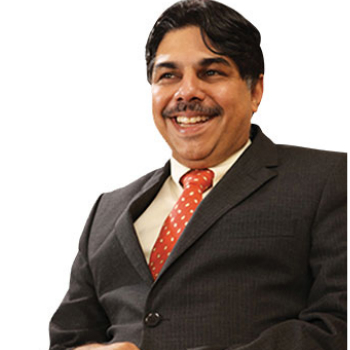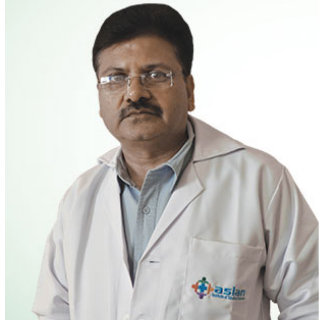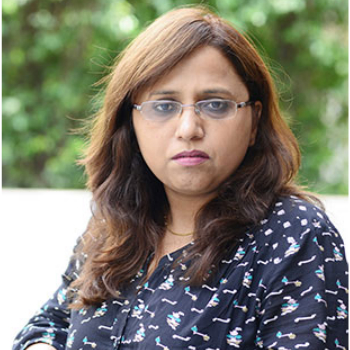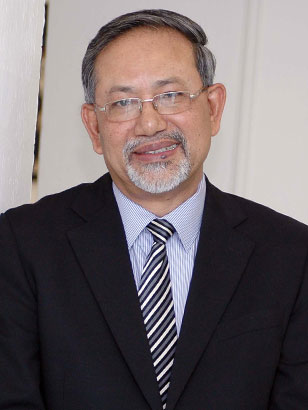
Dr VP Mishra is Director, Academic Committee, at the Medical Council of India (MCI). In a conversation with ENNs Rajesh K Sharma, he explains the MCIs push to make medical education relevant by incorporating technology
Please explain MCIs vision.
MCI is a statutory body created by a parliamentary enactment with three important mandates. Its primary mandate is to maintain a registry of doctors through the Indian medical register, set the standards of medi- cal education, monitor them and en- sure they are followed in the medical schools. It is also required to regulate the opening of a new medical college, increase in the intake in existing medical colleges, opening of new post graduate courses, increase in the in- take of on-going post graduate cours- es, recognition of medical schools and renewal of their courses.

What are the duties of the Academic Committee at MCI?
The Academic Committee is a recom- mendatory committee constituted by the MCI President for advising com- petent authorities on all academic concerns. It is MCIs think-tank. The Academic Committee assists various authorities in decision-making through its recommendations. It does not make any decisions; it makes rec- ommendations based on the existing and future academic concerns, chal- lenges and limitations.
In your opinion, what is the state of medical education in India?
If you consider the number of medi- cal institutes in the country, we have made huge strides. Today, India has 389 medical schools with an intake capacity of nearly 50,000 seats for MBBS and 25,000 seats for PG cours- es, perhaps the largest for any coun- try. But there is still scope for aug- mentation of the quantity.
More than that, the quality concerns need to be addressed and focused upon. In this, there are two impor- tant aspects. Firstly, we do not have a mechanism for accrediting medical institutions. MCI recognizes, approves and permits medical colleges. For op- erational purposes, we think that recognition is accreditation, which it is not. Recognition by MCI is being worked against the regulations, the title of which is self-speaking: minimum requirements to be fulfilled for the purposes. You are prescribing mini- mum requirements which are required to be fulfilled, but they do not guaran- tee quality sustenance, enhancement and enrichment. These three have to be addressed, so accrediting mecha- nism for medical education is a must. The Academic Committee suggested that the Indian Medical Act should be amended to give MCI the authority to create an accreditation body for medi- cal education.
The other important concern is the academic concern. The Academic Com- mittee regulates the curriculum, how it should be updated and the minimum requirements are notified by MCI un- der Section 33 of the Indian Medical Council Act. But the preconditions are that MCI cannot notify even the regu- lations on academic matters without the prior approval of the government. In our experience, this takes up a lot of time. If a curriculum that is formulated but not notified for four years, then it loses its relevance. We have proposed that this Section should be amended since Academic Committee is an ex- pert body taking an expert decision based on inputs from all members and from the relevant stake holders, so that things are uted in a timely manner.
Also, while we talk of authority and autonomy of medical colleges, MCI has no authority to prescribe service conditions for medical teachers. It does not even have the authority to prescribe pay scales for the medical teachers. The University Grants Com- mission (UGC) has it. The Academic Committees contention is that the authority to prescribe the service conditions and pay scales of teachers in higher education should be vested with MCI instead of UGC. If the ambit of the jurisdiction of the Indian Medi- cal Act is made on par with UGC for the purposes of higher education, a huge gap can be closed.
Though the number of colleges have increased, the quality is still lagging?
Quality has to match the internation- al standards. In a borderless world, you are not preparing your doctor for a small time local situation. The Indian medical graduate should be a global medical practitioner. That competency cannot be brought with- out catering to the quality centricity of medical education.

But western countries have adopted technology in medical education in the form of digital learning centers. Does MCI have a similar vision?
Yes. Ultimately, you have to think about the role of medical education in national development, quest for excellence, incorporation of medical technology, in terms of linkages with global competencies, and with ethical medical practices incorporated with morality and values. The Academic Committee has ventured into creat- ing a competency based, integrated curriculum for the MBBS course. Through various expert committees, things have come to a very advanced stage, and we will be putting up for the consideration of the competent authorities at MCI.
But what about tools like digital learn- ing aids and virtual classes?
Ultimately, virtual component o learning has to be brought into place, and the Academic Committee is alive to this requirement, be it virtual li- brary, virtual learning, incorporation of technology. Therefore, a realis- tic assessment of the requirement standards is being worked out in the context of advent and incorporation of technology.
India has an abysmal teacher to student ratio in medical education…
A lot of thinking has gone into it, and the ratio has been appropriately worked out, where we cannot say it is abysmally poor.
A paucity of teachers could be there due to their non-availability, and that is because people are not interested in taking up teaching as a profession now. The reasons could be pay scales, incentives, working conditions etc. We have to look into all this. Teachers cannot be manufactured in a factory. We have to create conducive working conditions for them.
“The Academic Committee assists various authorities in decision- making through its recommendations”
Faced with the paucity of teachers, can the digital learning tools aid in teaching?
They can. Even in the modified and updated regulations, technology has found its place. But technology has to find its place in a larger context, and the Academic Committee has taken that exercise – how IT results in vari- ous virtual formats of teaching and learning, how it can be incorporated, and what will be its impact on the minimum standard requirements.
Do you foresee any roadblock in the adoption of IT in medical education?
All implementations have to be made in the form of regulations. Presently, the Academic Committees findings are put before an utive commit- tee, which takes it to the MCIs Gen- eral Body Council. The General Body in turn sends it to the Government of India for approval before it is notified for implementation. What we are say- ing is, in academic matters, MCI be given the authority to implement the recommendations. This will shorten the process.
Is the delay in implementing the decision the only roadblock you foresee?
It is timely implementation of the poli- cies which are required to be routed in the form of regulation. Regulation making and regulation notifying as an exercise should not be time consum- ing which, as of now, it is.
We have a new government, which has promised to do improve govern- ance, does that give you confidence?
We have a well meaning President at MCI, and a well meaning Health Minis- ter. Their timely interactions over time should be in a position to take things forward in a positive and pragmatic manner, and Im optimistic about it.
Be a part of Elets Collaborative Initiatives. Join Us for Upcoming Events and explore business opportunities. Like us on Facebook , connect with us on LinkedIn and follow us on Twitter , Instagram.








